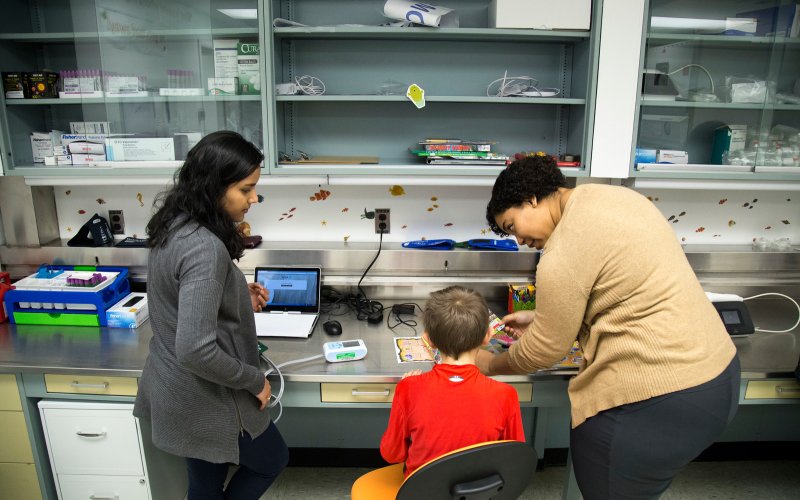Research Spotlight: Polycystic Ovary Syndrome and Hirsutism in Mothers

Polycystic Ovary Syndrome (PCOS) is a common endocrine condition in women of reproductive age and is often associated with infertility. One potential criteria of having PCOS is hirsutism, which refers to the presence of excess body hair. Studies have suggested that maternal PCOS and hirsutism may be associated with developmental delays and autism in children. However, rigorous research has not been done to look at associations with children’s behavioral problems and mental disorders.
In efforts to address this gap, researchers from the Eunice Kennedy Shriver National Institute of Child Health and Human Development and others, including UAlbany’s Dr. Erin Bell, examined the relations of maternal self-reporting of PCOS and hirsutism with children’s behavioral problems and mental disorders at 7 and 8 years old in the Upstate KIDS birth cohort study.
Study findings indicated that children born to mothers with PCOS had a higher risk of anxiety and borderline emotional symptoms in comparison to children born to mothers without PCOS. In addition, maternal hirsutism was associated with a higher risk of ADHD, conduct disorder, borderline emotional symptoms, peer relationship problems and conduct problems in children.
These findings suggest that PCOS and hirsutism in mothers may be associated with anxiety and behavioral problems in children, respectively, and may be used to develop hypotheses for future studies.
In-depth results of this study can be found in Reproductive Endocrinology.
Written by Benish S., School of Public Health Communications Graduate Assistant


